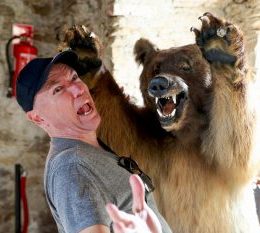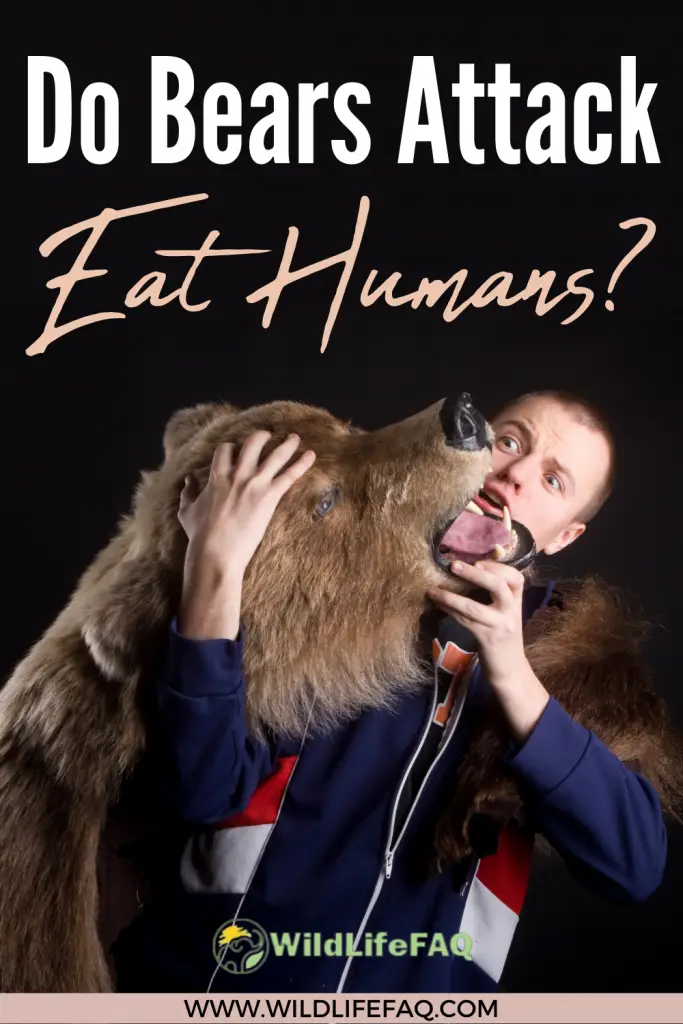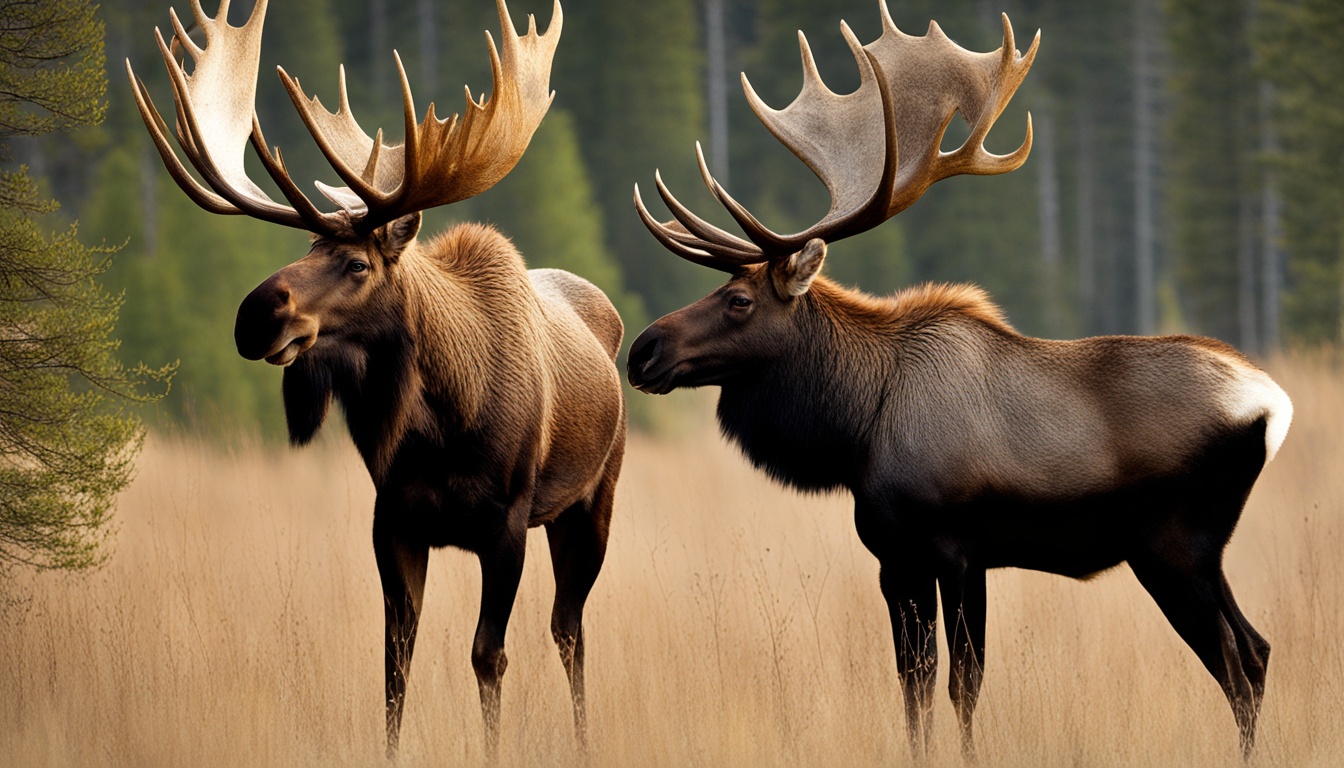Yes, Bears are huge carnivores that roam wild in many places where humans live. If you happen to be a human in the wrong place – a bear may well attack and eat you.
Why Do Bears Attack Humans?

Just like most wild animals – bears don’t directly seek out and hunt humans as their main prey. However, bears are often in close contact with humans and do occasionally meet – and sometimes – depending on what the human is doing and what the bear is thinking – there can be an attack.
Most bear attacks are believed to be caused by surprise encounters – say a lone walker taking a break on a trail, or a camper sitting quietly by their tent. When the bear gets too close and the person moves suddenly – the bear may attack. Healthy single bears who hear humans coming – often run away – preferring to avoid a confrontation.
However, it isn’t just about what the human is doing. If the bear is hungry, in pain, scared, has young cubs, or has been habituated by feeding – it may well be drawn to where humans are and this increases the chances of an attack.
Attacks are increased around human feeding points and campsites because bears have an amazing sense of smell and if ‘we’ have destroyed a lot of their natural foodstuffs – they have no choice but to look elsewhere. And if you are hungry and have accidentally killed a human – why wouldn’t you eat it?

What Kind Of Bears Eat Humans?
There are however a rising number of deaths that are reported as ‘predatory’ where the bear wasn’t just startled – it was considering an attack. Oftentimes these are hungry bears that have run out of food in the ‘normal places’ and so have been forced into the borderlands between forests and houses.
In the US, the most bear attacks are from black bears – mainly because there are more black bears in the US than any other bear – and they also live in more places where humans live. Generally, though, black bears don’t attack humans – they just huff and puff and stamp their feet.
Grizzlies cause the most injuries because they are bigger and more unpredictable. They are thought to only do it to ‘stop the threat’ – and most attacks are over in a few minutes.

Male polar bears however appear to actively ‘hunt’ humans. Their patterns of attacks (all bear attacks are documented and compared) indicate a purpose to their hunting. They aren’t startled (a bit difficult to creep up on a bear in open snowfields) and often don’t attack food stores alone. They usually attack groups of people and only eat the people – not their supplies. Grim.
Sloth bears (across the Indian subcontinent) are incredibly unpredictable and are more feared than tigers in parts of their home range. Although they are insectivorous – they can be super grumpy and really don’t tolerate anyone annoying them. They sleep in trees too – so can be easy to startle!
Asian black bears are more likely to attack and eat humans than European brown bears. In built-up areas, they are more likely to attack purely due to their proximity to humans.
Can You Avoid A Bear Attack?
Well, if you are in bear country – you are already stepping into the frying pan – but there are many things you can do to avoid an encounter. Based on statistics gathered from known incidents, the following things reduce your chances of being attacked and possibly eaten.
Know Your Bears
If you know the types of bears in the area you are visiting – and know their behaviors at the time of year you are traveling – you can understand where they will be and how to react to an encounter.
Smell Of Nothing
Bears can smell food and other scents from miles away – and so if a bear is hungry or feeling nosey – they will be able to track you wherever you go. Having any food at all packed in tents or bags is like lighting a bear beacon too.
Look For Signs
If you see fresh bear tracks, droppings, or hear bears – move away fast or turn back. Even though hearing you should have them wander off the other way – if they are hungry, have cubs, or your marked trail loops around – you could be moving towards danger with every step.
Stay In Groups
Bear attacks are much more common with single people or with pairs. There don’t seem to have been many incidents reported of attacks on larger groups outside of campsites.
Carry Bear Spray
A staggering 98% of people who used bear spray (in the US) were uninjured by the bear they encountered. It needs to be clipped on your belt to be effective though – as rapid use is essential.











